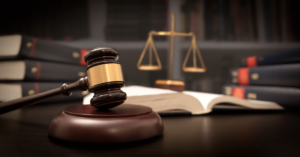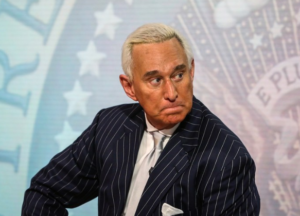INTRO: Personal Web Technologies LLC last month filed some 50 lawsuits in a handful of jurisdictions around the country against Amazon Web Services customers, but Amazon is fighting the suit, arguing the patent holder had already lost its case when it dropped claims against Amazon itself.
FACTS:
Personal Web sued Amazon and others in 2011 in Texas federal court alleging infringement of its eight U.S. Patents. The judge overseeing that suit made a ruling on claim construction, and the parties stipulated to dismiss the suit with prejudice, ending the claims against Amazon in 2014, according to that case’s docket. Then, on Jan. 8 and 9, Personal Web filed 28 lawsuits against Amazon Web Services customers in the Northern District of California alleging infringement of four patents. All of those patents save one were asserted against Amazon in the earlier case, and all of the suits against Amazon’s customers allege the infringement stems from use of the online juggernaut’s S3 storage system.
ISSUES:
Personal Web:
- Patent infringement by Amazon customers
Amazon
- Case already dismissed with prejudice so can’t relitigate OR
- There is no patent infringement
LAW:
PATENT INFRINGEMENT
(a)Except as otherwise provided in this title, whoever without authority makes, uses, offers to sell, or sells any patented invention, within the United States or imports into the United States any patented invention during the term of the patent therefor, infringes the patent.
(b)Whoever actively induces infringement of a patent shall be liable as an infringer.
(c)Whoever offers to sell or sells within the United States or imports into the United States a component of a patented machine, manufacture, combination or composition, or a material or apparatus for use in practicing a patented process, constituting a material part of the invention, knowing the same to be especially made or especially adapted for use in an infringement of such patent, and not a staple article or commodity of commerce suitable for substantial noninfringing use, shall be liable as a contributory infringer . . .
(f)
(1)Whoever without authority supplies or causes to be supplied in or from the United States all or a substantial portion of the components of a patented invention, where such components are uncombined in whole or in part, in such manner as to actively induce the combination of such components outside of the United States in a manner that would infringe the patent if such combination occurred within the United States, shall be liable as an infringer.
(2)Whoever without authority supplies or causes to be supplied in or from the United States any component of a patented invention that is especially made or especially adapted for use in the invention and not a staple article or commodity of commerce suitable for substantial noninfringing use, where such component is uncombined in whole or in part, knowing that such component is so made or adapted and intending that such component will be combined outside of the United States in a manner that would infringe the patent if such combination occurred within the United States, shall be liable as an infringer.
Rule 57. Declaratory Judgment
These rules govern the procedure for obtaining a declaratory judgment under 28 U.S.C. §2201. Rules 38 and 39 govern a demand for a jury trial. The existence of another adequate remedy does not preclude a declaratory judgment that is otherwise appropriate. The court may order a speedy hearing of a declaratory-judgment action.
28 U.S.C. § 2201
(a) In a case of actual controversy within its jurisdiction, except with respect to Federal taxes other than actions brought under section 7428 of the Internal Revenue Code of 1986, a proceeding under section 505 or 1146 of title 11, or in any civil action involving an antidumping or countervailing duty proceeding regarding a class or kind of merchandise of a free trade area country (as defined in section 516A(f)(10) of the Tariff Act of 1930), as determined by the https://radiolawtalk.com/wp-content/uploads/2017/08/todd-kunen-1.jpgistering authority, any court of the United States, upon the filing of an appropriate pleading, may declare the rights and other legal relations of any interested party seeking such declaration, whether or not further relief is or could be sought. Any such declaration shall have the force and effect of a final judgment or decree and shall be reviewable as such.
DETAILED FACTS (tell the story):
Personal Web sued Amazon and others in 2011 in Texas federal court alleging infringement of its eight U.S. Patents. The judge overseeing that suit made a ruling on claim construction, and the parties stipulated to dismiss the suit with prejudice, ending the claims against Amazon in 2014, according to that case’s docket. Then, on Jan. 8 and 9, Personal Web filed 28 lawsuits against Amazon Web Services customers, such as Airbnb Reddit, Venmo, Kickstarter, MyFitnessPal, and FanDuel, in the Northern District of California alleging infringement of four patents. All of those patents save one were asserted against Amazon in the earlier case, and all of the suits against Amazon’s customers allege the infringement stems from use of the online juggernaut’s S3 storage system. All of the patents involved in the Texas case share a common specification, and each is generally directed to the same general idea: creating a content-based identifier for an object using a hash function, which is then used to find or identify objects in a system, Amazon said. Every claim of every one of those patents requires some form of content-based unique identifier.
Overall, Amazon has stated that “Defendants’ continued pursuit of 50 separate lawsuits dispersed throughout the country on precluded claims will irreparably harm Amazon and its customers. Because the same patents and the same accused technology are involved in all suits, claim preclusion bars Personal Web’s claims against Amazon’s customers.”
Personal Web has previously targeted companies including Apple Inc. and Facebook Inc. with lawsuits over the same portfolio of patents, court records show. The patents have been dragged into review before the Patent Trial and Appeal Board and before the Federal Circuit.
OTHER FACTS
- Amazon’s warehouses have more square footage than 700 Madison Square Gardens and could hold more water than 10,000 Olympic Pools.
- Amazon’s current logo was designed to depict a smile that goes from A to Z. “This signifies that the company is willing to deliver everything to everyone, anywhere in the world.”
- Last year, when Amazon’s site went down for 49 minutes the company missed sales of nearly $5.7 million.
ARTICLE LINKS:




